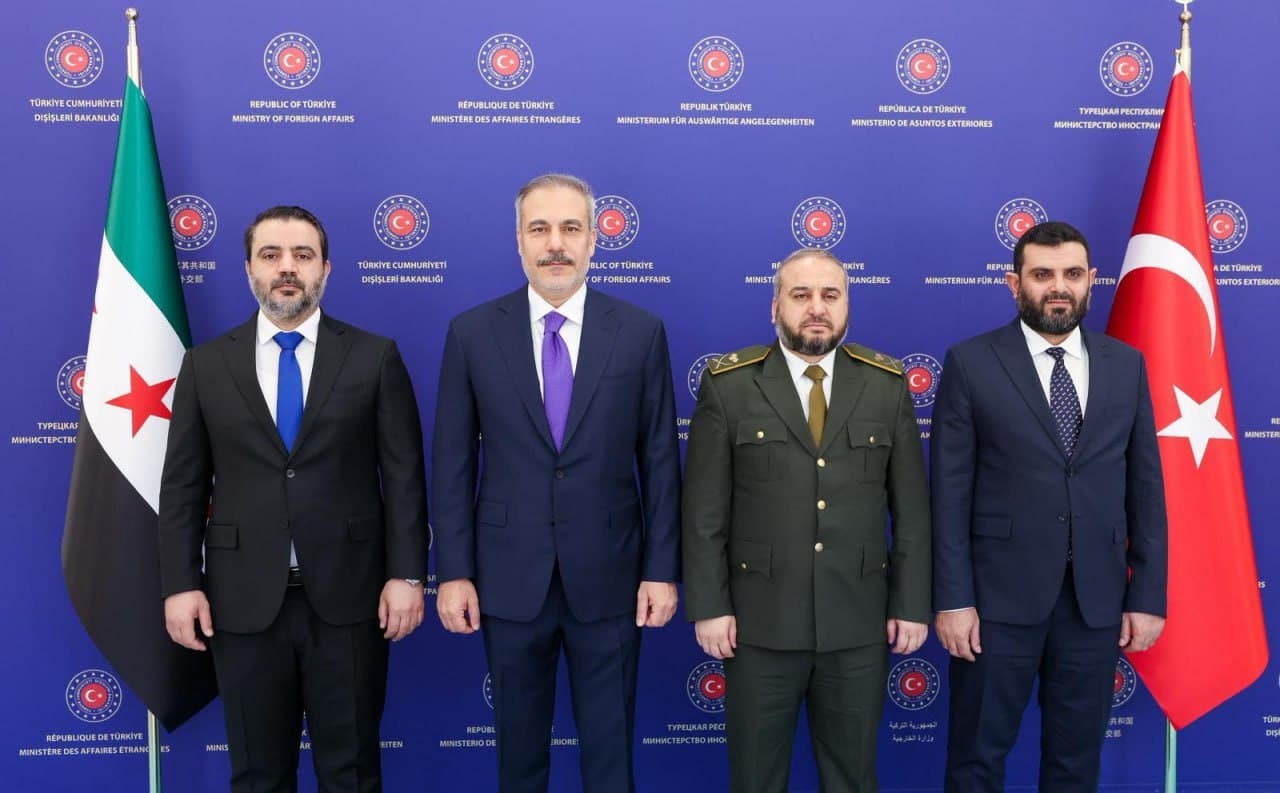Turkey and Syria Engage in Pivotal Talks, Fostering Diplomatic Ties Amid Regional Tensions
In a significant diplomatic development, Turkish Foreign Minister Hakan Fidan held high-level talks in Ankara with key Syrian officials, including the Syrian Foreign Minister, Defense Minister, and the head of Syrian intelligence. This meeting, which took place on recently, marks a crucial step towards restoring relations between the two nations that have been strained due to the ongoing Syrian civil war and the evolving geopolitical landscape in the Middle East.
Background & Context
The relationship between Turkey and Syria has been fraught with tension over the past decade, primarily due to Turkey"s opposition to the Syrian government led by President Bashar al-Assad and its support for various opposition groups. The Syrian civil war, which began in 2011, has created a complex web of alliances and enmities in the region, with Turkey hosting millions of Syrian refugees and actively engaging in military operations against Kurdish groups it considers terrorist organizations.
Recent developments in the region, including Turkey"s shifting foreign policy and the changing dynamics of power in Syria, have prompted both nations to reconsider their stances. As previously reported, Turkey has been increasingly open to dialogue with the Assad regime, aiming to stabilize its southern border and manage the refugee crisis more effectively.
Key Developments
During the talks in Ankara, Minister Fidan emphasized the importance of collaboration in addressing mutual security concerns, particularly regarding the presence of Kurdish militants along Turkey"s border. The Syrian officials highlighted the need for Turkey to respect Syrian sovereignty while advocating for a political resolution to the conflict.
Fidan stated, "Our discussions today focus on finding common ground and establishing a framework for future cooperation. We believe that dialogue is essential to achieving stability in the region." This sentiment was echoed by the Syrian Foreign Minister, who expressed hope that these talks would pave the way for a more constructive relationship between the two nations.
Broader Impact
The implications of this meeting extend beyond Turkish-Syrian relations. It signals a potential shift in alliances within the Middle East, where countries are reevaluating their strategies in light of the evolving geopolitical landscape. Experts suggest that improved relations between Turkey and Syria could lead to a reduction in hostilities and greater regional stability, particularly as both nations face common threats from extremist groups and external influences.
Moreover, this diplomatic engagement could impact Turkey"s relations with other regional players, including Iran and Russia, who have been instrumental in supporting the Assad regime. The balancing act between maintaining ties with these allies while engaging with Syria could prove challenging for Turkey as it navigates a complex web of regional politics.
What"s Next
Looking ahead, the outcome of these talks will likely determine the future trajectory of Turkish-Syrian relations. Both sides have expressed a willingness to continue discussions, with further meetings expected in the coming weeks. This ongoing dialogue could lead to collaborative efforts in areas such as border security, counter-terrorism, and the management of refugee flows.
Additionally, the international community will be closely monitoring these developments, as they could influence broader geopolitical dynamics in the Middle East. As seen in recent developments involving territorial disputes and diplomatic tensions, the actions of regional powers can have far-reaching consequences. Analysts suggest that the success of Turkish-Syrian talks may inspire similar engagements among other nations grappling with longstanding conflicts.


![[Video] Heavy clashes and gunfire reported in Baghdad, Iraq](/_next/image?url=%2Fapi%2Fimage%2Fthumbnails%2Fthumbnail-1768342239932-848qsh-thumbnail.jpg&w=3840&q=75)




![[Video] Gunfire between Iraqi security forces and Sadr militias in Baghdad](/_next/image?url=%2Fapi%2Fimage%2Fthumbnails%2Fthumbnail-1768343508874-4redb-thumbnail.jpg&w=3840&q=75)
